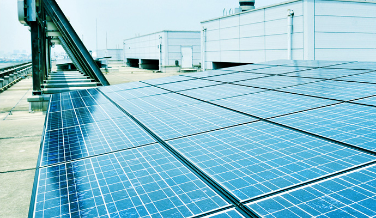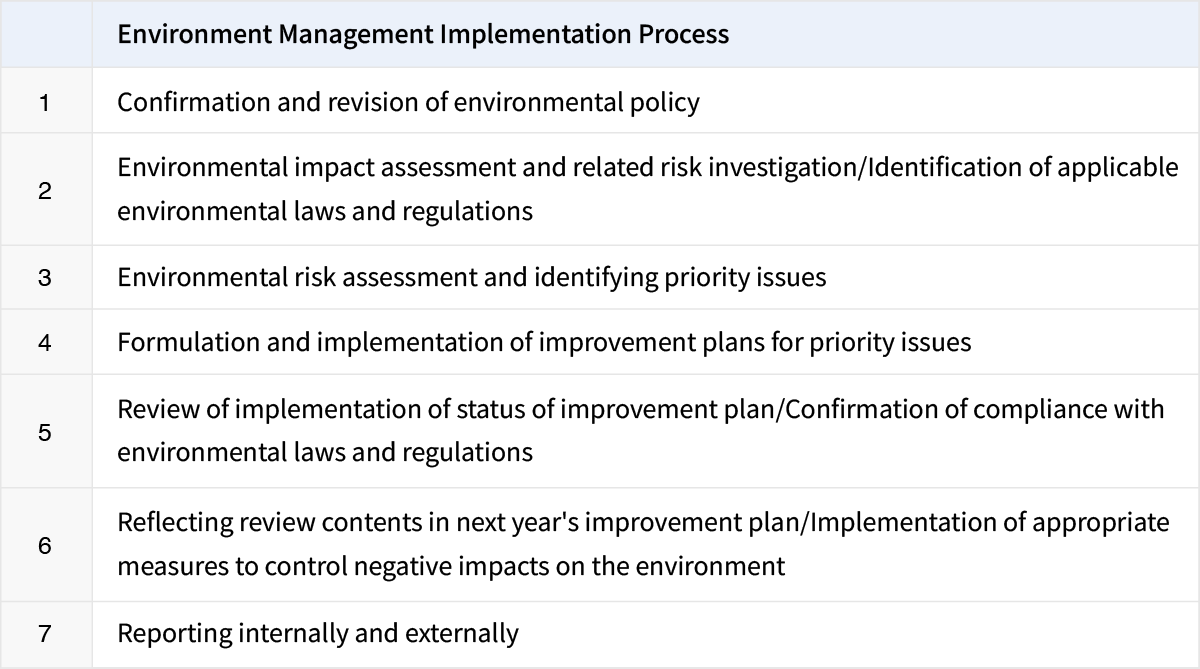- HOME
- Sustainability
- Environment
Environment
To help us reach net-zero emissions by 2050, we are working to reduce our environmental impact by adopting renewable energy and energy-saving measures.

The JAT Group constructs, manages, and operates passenger terminals that run 365 days a year. As such, we believe that it is important for every employee to be aware of how they can contribute as we work to improve operations and facilities and reduce our environmental impact. We will continue striving to provide convenient and comfortable facilities and services, while fulfilling our social responsibilities as a company and doing our best to protect the environment.
JAT Group Environmental Policy
While recognizing our mission as a Group responsible for the construction, management, and operation of busy public passenger terminals, the JAT Group aims to create sustainable airports in harmony with the global environment through our Basic Sustainability Policy and collaborating with our stakeholders.
Environment Management Process

Disclosure of Information Based on TCFD Recommendations

To help us achieve our long-term vision of “To Be a World Best Airport,” we have made responding to climate change issues one of our most important management issues. As such, we work in a variety of ways to reduce our environmental impact. In moving toward a sustainable society, we have declared our support for the recommendations proposed by the Task Force on Climate-Related Financial Disclosures (TCFD). Guided by these recommendations, we are committed to disclosing information regarding governance, strategy, risk management, as well as indicators and targets.
Disclosure of Information Based on TNFD Recommendation

The JAT Group aims to realize its long-term vision of “To Be a World Best Airport” and its goal of "becoming one of the most advanced, human- and eco-friendly airports by 2030." As such, The JAT Group has identified measures to combat climate change and effective use of limited resources as two of its key issues (material issues). In order to realize a nature-positive society, we will conduct evaluations and analyses based on TNFD Recommendations and disclose the information.
Environmental data
| Type | Unit | FY | |||
|---|---|---|---|---|---|
| FY2021 | FY2022 | FY2023 | FY2024 | ||
| City Gas | ㎥ | 3,777 thousand |
3,999 thousand |
4,569 thousand |
4,444 thousand |
| Diesel | KL | 177 | 264 | 477 | 523 |
| Gasoline | KL | 69 | 86 | 115 | 110 |
| Heavy fuel oil A | KL | 2 | 5 | 12 | 4 |
| Kerosene | KL | 28 | 36 | 43 | 38 |
| LPG | t | 229 | 314 | 392 | 415 |
| Amount of waste incinerated | t | 7,832 | 13,420 | 19,293 | 20,270 |
| Electricity | MWh | 130,557 | 154,015 | 169,916 | 184,428 |
| Steam and cold water | GJ | 401,975 | 448,519 | 507,631 | 561,745 |

| Item | Range | FY | |||
|---|---|---|---|---|---|
| FY2021 | FY2022 | FY2023 | FY2024 | ||
| Total Emissions (Scope1+Scope2) |
Consolidated | 94,480 | 113,412 | 117,917 | 127,569 |
| Haneda area | 88,420 | 104,851 | 110,758 | 118,190 | |
| Outside the area etc. | 6,060 | 8,561 | 7,159 | 9,379 | |
| Scope1 | Consolidated | 13,673 | 17,472 | 22,534 | 18,125 |
| Haneda area | 11,813 | 14,967 | 19,194 | 14,715 | |
| Outside the area etc. | 1,860 | 2,505 | 3,340 | 3,410 | |
| Scope2 | Consolidated | 80,807 | 95,940 | 95,383 | 109,444 |
| Haneda area | 76,607 | 89,884 | 91,564 | 103,476 | |
| Outside the area etc. | 4,200 | 6,056 | 3,819 | 5,969 | |
| Item | FY | |||
|---|---|---|---|---|
| FY2021 | FY2022 | FY2023 | FY2024 | |
| Scope3 | 76,753 | 228,735 | 330,131 | 414,868 |
| 1 Purchased goods and services | - | 113,819 | 137,307 | 241,096 |
| 2 Capital goods | 17,862 | 45,474 | 104,372 | 69,440 |
| 3 Fuel- and energy-related activities (not included in Scope1 and 2) |
24,688 | 28,268 | 31,576 | 33,792 |
| 4 Upstream transportation and distribution |
3,881 | 10,193 | 23,135 | 35,980 |
| 5 Waste generated in operations | 832 | 1,478 | 2,223 | 2,177 |
| 6 Business travel | - | 45 | 119 | 241 |
| 7 Employee commuting | - | - | 1,868 | 2,281 |
| 13 Downstream leased assets | 29,490 | 29,458 | 29,531 | 29,861 |
| Type | Unit | FY | |||
|---|---|---|---|---|---|
| FY2021 | FY2022 | FY2023 | FY2024 | ||
| Water usage | m³ | - | 744,004 | 1,082,124 | 1,184,645 |
| Drainage amount | m³ | - | 741,110 | 1,001,040 | 1,103,900 |
| Amout of waste by terminal | t | 3,755 | 6,115 | 9,118 | 10,426 |
| Terminal1 | t | 1,863 | 2,574 | 2,866 | 3,013 |
| Terminal2 | t | 1,397 | 2,042 | 2,679 | 3,342 |
| Terminal3 | t | 495 | 1,499 | 3,573 | 4,072 |
| Amount of waste recycled by terminal | t | 1,220 | 2,317 | 3,730 | 4,127 |
| Terminal1 | t | 517 | 779 | 891 | 887 |
| Terminal2 | t | 473 | 679 | 951 | 1,132 |
| Terminal3 | t | 230 | 859 | 1,888 | 2,108 |
| Recycling rate | % | 32.5 | 37.9 | 40.9 | 39.6 |
JAT Group Environmental Initiatives
Energy-Saving Initiatives
We are undertaking initiatives that meet the needs of the times, such as utilizing inverter air conditioners and LED lighting, and installing electric vehicle charging stations.
Utilizing Natural Energy
We are proactively introducing solar power systems and green power, and are working to reduce our CO2 emissions.
Reducing Waste and Recycling Resources
Some of our efforts to reduce waste and recycle resources include recycling waste from our terminals, using a food waste disposal system, and reusing rainwater and wastewater.
